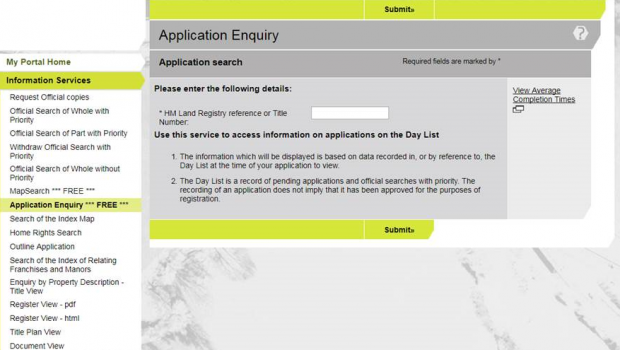Search results for VIPREG promo code for betwinner free bet South Africa
...preferred locations. The trend for urban expansion has been acknowledged by both central and local government. The Department for Communities and Local Government's Housing White Paper stresses that the country...
...freehold or leasehold, whether there is a mortgage on the property and the lender’s contact details. We were delighted that ‘Find Property Information’ passed its Government Digital Service (GDS) beta...
...signing tools are not always connected, so conveyancers may have to use one app for an identity check and another for the electronic signature. This is clearly not ideal for...
...will ultimately be of significant benefit not only for our business, but also for our clients and customers. A reduction in errors If we’re going to automate more applications, we...
...take up to a month. However around a fifth of all applications require us to make requests for information (requisitions) – which then take considerably longer, with most only being...
...process as possible, and if there is a variation in any deed or form, or between any deed or form and the register, take action to resolve it before sending...
...in recent months. However, the benefits of using electronic signatures go well beyond meeting the immediate problems for conveyancers working from home. Removing the need for paper deeds and post...
...because it: was rented out had the property address as the only contact address for the owner was mortgage-free was of high value Land Registry’s counter-fraud team have been able...
...hard at work formalising new, tiered licences. In these cases, licences will cater for research and personal interest users, under free to use terms, offer equitable terms for solely commercial...
...you will need certain references to search for certain things. For example, you won’t be able to find out whether an application has been completed if you don’t have the...









